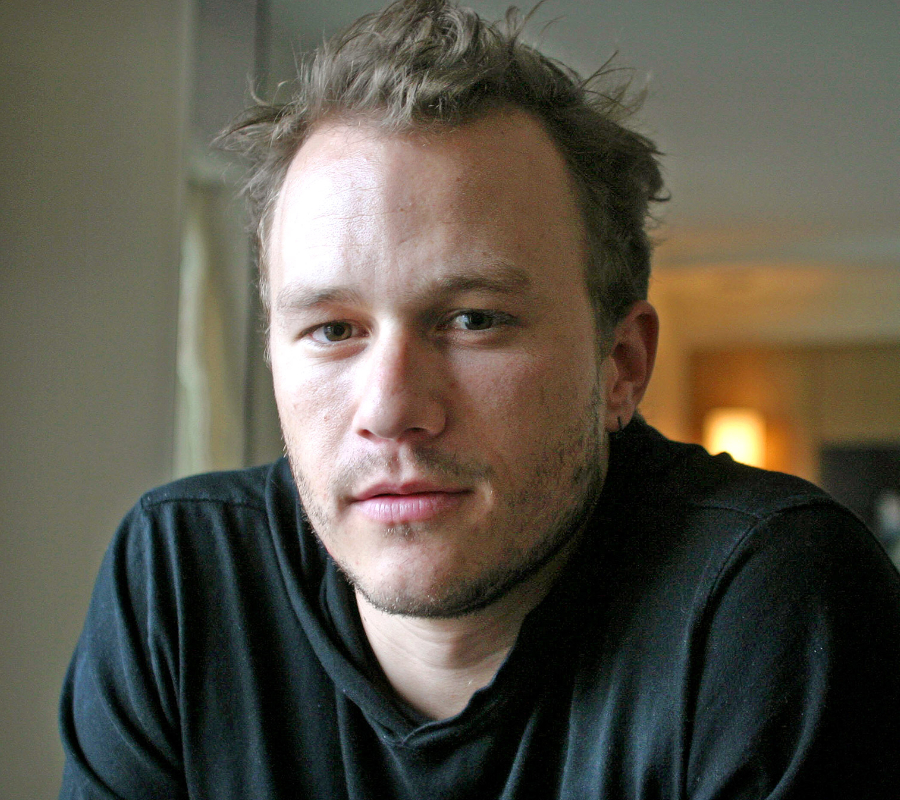Heath Ledger’s father Kim Ledger gave an interview to Daily Mail Australia about his son’s tragic death. In January 2008, Heath Ledger ingested a combination of sleeping pills and painkillers, which led him to overdose accidentally. He was found dead the next morning, at the age of 28.
Mr. Ledger stated that his son caused his death since he was the one who put drugs “in his system.” He added that he has learned to accept it, even though it has been hard “because I loved him so much and was so proud of him”. Mr. Ledger also declared how Heath’s sister tried to reach him the night before, telling him to stop mixing the medication.

According to his father, Heath’s last words to his sister were “Katie, I’m fine. I know what I’m doing”. Mr. Ledger believes his son’s status as an actor and celebrity had much to do with his dead. He stated that his son’s hectic schedule did not let him rest or receive proper medical care.
Heath would eventually receive an Academy Award for Best Supporting Actor, for his role as The Joker, deemed his best work. The Oscar award is currently in a museum in Perth, where the rest of his Joker paraphernalia is also located. Heath’s daughter Matilda would inherit all of his father’s memorabilia at the age of 18.
“There’s so much pressure on them to perform so even though your body is telling you that it’s not good and needs time, it’s like ‘just take these painkillers and keep going […] He had to be back on set to finish. They were doing night shoots in the freezing cold and he had a weak chest anyway”.
https://twitter.com/HeathUltimate/status/758391391588323329
An Australian crisis
Heath Ledger was not alone in his struggle. Since his death, Mr. Ledger has become an advocate for the risk of opioid abuse in Australia. According to the United Nations 2014 World Drug Report, Australia ranks second worldwide for opioid use, commonly associated with painkillers like codeine or morphine.
Mr. Ledger has stated in the past that most Australians do not know the dimensions of opioid abuse in the country. 450 Australians die every year as a result of prescription pain relievers, according to addiction medicine specialist Dr. Christian Rowan.

Studies have shown that at least a quarter of Australians use opioid painkillers every month. Half of these consumers are unaware of their addiction. Mr. Ledger has also claimed that the stigma around opioid abuse must be reduced, so addicts can feel the courage to discuss their problem with their family or friends.
“By speaking about Heath and what happened to him, we can send a message to Australians and hopefully we can save someone’s life,” said Mr. Ledger.
https://twitter.com/hapn_news/status/755895596708278272
America doesn’t stay behind…
The abuse of opioids is also a big problem in the United States. The National Institute on Drug Abuse estimates that 2.1 million Americans are suffering from addiction to prescription opioids.
Accidental overdose deaths such as Ledger’s have more than quadrupled since 1999. Many experts also believe that opioid addiction has led to more heroin abuse.
In the realm of prescription drugs, opioids are not the only ones causing addiction, central nervous system depressants, and stimulants are also very addictive.
Abuse of prescription drugs: an increasing phenomenon
Experts have trimmed down many factors that might have something to do with the ever-growing opioid abuse problem. The first one is that using medications for almost every purpose has become more socially acceptable, generating an increase in the number of opioids prescriptions written and dispensed in the country.
These medications are so addictive because they act on the same brain system as heroin and morphine. The risk of overdose increases exponentially when mixing different pills, taking more than the recommended dosage, or crushing the pills to inject the powder.

A small percentage of the population can still become addicted even when using opioids as prescribed. Prescribed opioid medications affect the brain regions that focus on ‘reward’, generating a sense of pleasure.
Misuse of Opioids Doubled in the United States Over a Decade: Over 4 percent of adults reported nonmedical us… https://t.co/kgmQ1RD9X4
— Doctors Lounge (@DoctorsLounge) June 25, 2016
Source: E! News
